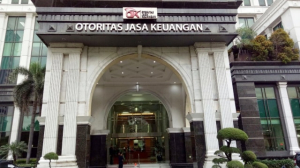Indonesian carbon trading success crucial for global decarbonization, according to OJK
The Indonesian government, through the Financial Services Authority (OJK), has announced that carbon trading through a carbon exchange will commence on September 26, 2023.
Mahendra Siregar, the Chairman of the OJK Commissioner Board, believes that the success of Indonesia's carbon exchange is crucial for global decarbonization.
He asserted that this is because Indonesia possesses unmatched potential worldwide for carbon emissions reduction.
Consequently, prior to the commencement of carbon trading, the OJK is focused on enhancing the capabilities of all relevant stakeholders.
"I see and we calculate globally that if Indonesia does not succeed in taking these steps (carbon trading), then we cannot be too optimistic that the world will succeed," he stated during a Seminar on Greenhouse Gas Emission Reduction and Carbon Trading Opportunities in Jambi on Monday, September 18.
He also pointed out that Indonesia is among the top nations determining whether the world can effectively address this critical carbon emissions reduction effort. "We are not a nation below, but rather one of the top players," he emphasized.
Steps to become a major carbon player
In addition to the success of the carbon trading ecosystem through the carbon exchange, Mahendra outlined three other steps Indonesia can take to become a major player in global carbon emissions reduction.
Firstly, Mahendra cited the ongoing peatland restoration in Tanjung Jabung Timur, Jambi, which is being converted back into arable land. He emphasized the need to expand such programs across various regions of Indonesia as a commitment to the Nationally Determined Contribution (NDC).
Secondly, he stressed the importance of the government and stakeholders working together to improve the social and economic well-being of communities.
This is because social and economic well-being is also a part of the Sustainable Development Goals (SDGs) and a cornerstone of sustainable development, which comprises increasing social well-being, economic development, and preserving and building a green environment.
Thirdly, Mahendra called for sustainability policies to be implemented across all regions of Indonesia, not just in Jambi, without neglecting the profitability aspect.
Tag
Already have an account? Sign In
-
Start reading
Freemium
-
Monthly Subscription
30% OFF$26.03
$37.19/MonthCancel anytime
This offer is open to all new subscribers!
Subscribe now -
Yearly Subscription
33% OFF$228.13
$340.5/YearCancel anytime
This offer is open to all new subscribers!
Subscribe now






